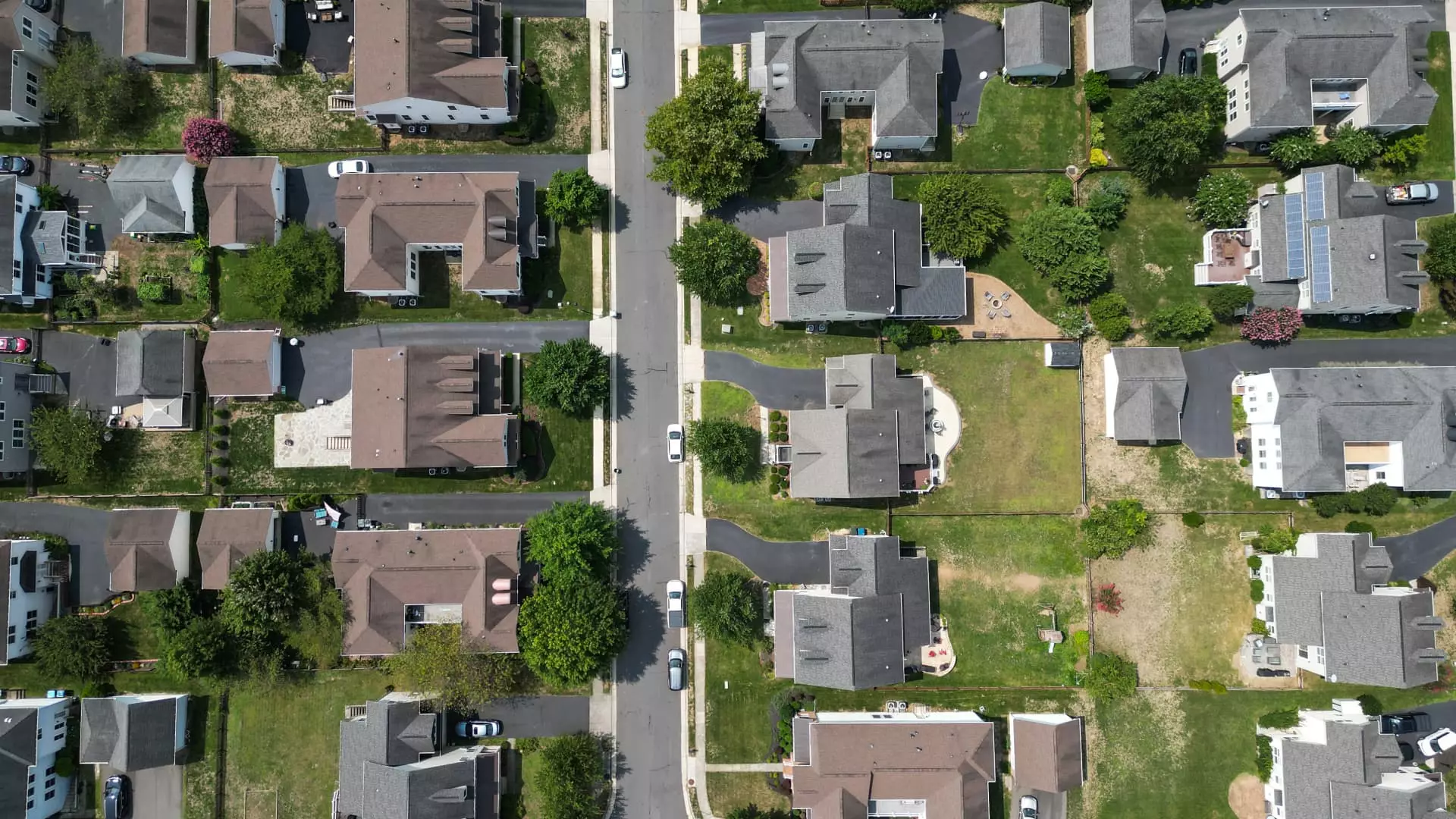The mortgage landscape has experienced subtle shifts in recent weeks, primarily marked by a decline in rates that, while modest, has impacted homeowner behavior significantly. Specifically, the average interest rate for 30-year fixed-rate mortgages with conforming balances dipped from 6.69% to 6.67%. This slight decrease is noteworthy because it reflects a consecutive downturn over the course of three weeks. Such fluctuations can indicate larger economic trends and impact prospective homeowners and refinancers alike.
The recent decrease in mortgage rates has prompted a marked uptick in refinancing activity. According to the Mortgage Bankers Association (MBA), applications for refinancing surged by an impressive 27% week-on-week, and they are nearly 42% higher compared to the same period last year. It’s crucial to note that these spikes can sometimes be misleading; they stem from a relatively small base of refinancing activity, as many mortgages issued in previous years carry lower rates than what is currently available.
From 2020 until mid-2022, the mortgage market enjoyed historically low rates that fell below the 4% mark, meaning current offers are less attractive for many existing homeowners. Nevertheless, an increasing number of homeowners are seizing the opportunity to refinance, likely motivated by the prospect of potential savings on their mortgage payments.
Alongside a boom in refinancing, applications for new home purchases have taken a bit of a hit, declining by 4% from the previous week. However, this figure still represents a 4% increase compared to the same week last year. This dual trend—rising refinancing applications alongside a dip in purchase applications—illustrates the complexities of the current housing market.
Despite these fluctuations in purchase applications, overall demand remains relatively robust. Sustained interest from homebuyers, bolstered by an improving inventory of homes for sale, signals a resilient housing market. As Joel Kan, an economist with the MBA, points out, purchase applications have remained strong, largely backed by consistent demand and a gradual increase in market inventory.
As we look forward, the direction of mortgage rates remains uncertain. Factors influencing these rates include economic indicators such as the Consumer Price Index, which will be released shortly. Market analysts are closely watching such data, as it serves as a barometer for inflation and can sway mortgage rates significantly. Following the recent surge in rates to start the week, it’s evident that the market is sensitive to economic signals.
While recent weeks have shown a modest decline in mortgage rates, the implications for both refinancing and purchasing behavior are complex and multifaceted. Homeowners are increasingly motivated to refinance amidst competitive rates, yet those looking to purchase face a fluctuating market influenced by broader economic conditions. The coming weeks will be crucial in determining whether this trend continues or if the market experiences further volatility.

